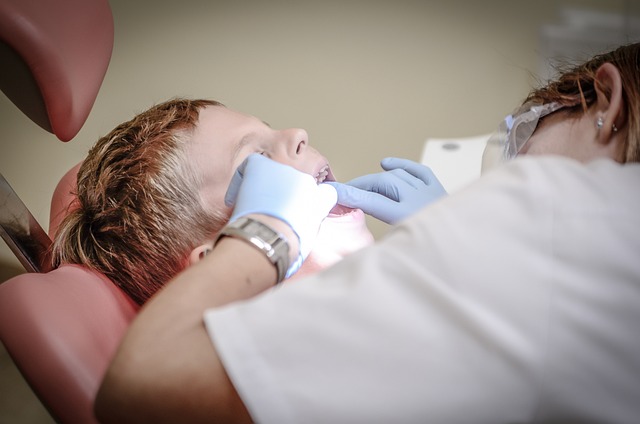Have you ever wondered how often veneers fall off? In this article, we will explore dental maintenance tips to help you keep your veneers intact.
1. Understanding the Lifespan of Dental Veneers: How Often Do They Fall Off?
Dental veneers are a popular choice for enhancing the appearance of teeth, but it’s natural to wonder about their lifespan and how often they may fall off. While veneers are known for their durability, they are not invincible. Understanding the factors that contribute to the lifespan of dental veneers can help you make informed decisions about your oral health.
Factors that affect the longevity of dental veneers:
- Oral hygiene: Good oral hygiene plays a crucial role in the lifespan of your veneers. Regular brushing, flossing, and using mouthwash will help maintain the health of your underlying teeth and the longevity of your veneers.
- Natural wear and tear: Over time, your veneers may experience normal wear and tear due to factors such as grinding or clenching teeth during sleep. Wearing a nightguard can protect your veneers from these habits and prolong their lifespan.
- Quality of the veneers: High-quality veneers, crafted with precision and from durable materials, tend to last longer. It’s important to choose a reputable dentist who uses top-notch materials for the best outcome.
- Personal habits: Habits like biting your nails, chewing on ice or hard objects, or using your teeth to open packages can put unnecessary stress on your veneers and increase the risk of them falling off. Avoiding these habits can help extend the lifespan of your veneers.
If you experience any issues with your veneers, such as them feeling loose or falling off, it’s important to consult your dentist immediately. With proper care and regular dental check-ups, dental veneers can last for many years, allowing you to confidently flaunt a beautiful smile.
2. Factors Influencing Veneer Durability: Unveiling the Key Aspects
Moisture:
Veneer durability is greatly impacted by moisture. Excessive moisture can cause veneer to swell and warp, compromising its structural integrity. Conversely, dry conditions can lead to veneer becoming brittle and prone to cracking. It is essential to ensure that the moisture content of the environment where the veneer is installed is adequately regulated. This can be achieved through the use of proper insulation and ventilation systems, as well as regular monitoring of humidity levels.
Wood Species:
The type of wood used for veneer also plays a significant role in its durability. Different wood species have varying levels of hardness, resistance to moisture, and natural protection against pests and decay. Some species, such as oak and teak, are renowned for their exceptional durability, making them ideal choices for veneer applications in high-traffic areas or exterior settings. It is crucial to carefully select the wood species that best aligns with the intended use and environmental conditions to ensure optimal veneer durability.
3. Preventative Measures for Prolonging the Lifespan of Your Veneers
Proper care and maintenance can significantly extend the lifespan of your veneers, saving you time and money in the long run. Here are some essential preventative measures to ensure the longevity of your beautiful smile:
1. Maintain good oral hygiene: Brush your teeth at least twice a day with a soft-bristled toothbrush and fluoride toothpaste. Additionally, make sure to floss daily to remove plaque and food particles from between your teeth and around the veneers. Regular visits to your dentist for professional cleanings are also crucial for maintaining oral health.
2. Avoid excessive force or pressure: While veneers are durable, they can still chip or fracture if subjected to excessive force. Avoid biting down on hard objects like ice, pens, or your nails. Similarly, refrain from using your teeth as tools to open packages or bite into very hard foods. Instead, opt for appropriate tools or utensils to protect your veneers from unnecessary pressure.
Proper dental maintenance is crucial for ensuring the longevity of your veneers. By following these top dental maintenance tips, you can keep your veneers looking and functioning their best. 1. Practice good oral hygiene: Brush your teeth at least twice a day and floss daily. Use a non-abrasive toothpaste and a soft-bristled toothbrush to avoid damaging the veneers. Regular brushing and flossing help prevent plaque buildup and maintain the health of your veneers. 2. Avoid foods and habits that can stain: Veneers are resistant to staining, but it’s still important to avoid prolonged exposure to substances that can discolor them. This includes beverages like coffee, tea, and red wine, as well as tobacco products. If you do consume staining substances, rinse your mouth with water afterward and brush your teeth to minimize the effects. 3. Protect your veneers: While veneers are durable, they can still be damaged by excessive force or trauma. Avoid biting on hard objects like ice, pens, or fingernails. If you participate in high-contact sports, consider wearing a mouthguard to protect your veneers from potential damage. 4. Visit your dentist regularly: Regular dental check-ups are important for monitoring the condition of your veneers. Your dentist can detect early signs of problems and provide necessary maintenance or repairs. They can also help you with professional cleaning to keep your veneers in optimal condition. When it comes to veneers, it’s important to be aware of the warning signs that may indicate they are at risk of falling off. While veneers are generally durable and long-lasting, certain factors can compromise their stability. By recognizing these warning signs early on, you can take proactive steps to prevent any potential problems. Here are some key indicators that your veneers might be at risk of falling off: By paying attention to these warning signs, you can ensure the long-term stability and beauty of your veneers. Remember, if you notice any of these indicators, it’s best to consult with your dentist as soon as possible to address the issue before it worsens. When a veneer becomes loose or detached, it’s important to take immediate action to prevent further damage or discomfort. Here are the steps to follow: Step 1: Avoid touching or manipulating the loose veneer with your fingers or tongue, as this can worsen the situation or lead to potential injury. Step 2: Gently rinse your mouth with warm saltwater to reduce any discomfort and help keep the area clean. Be sure to spit out the saltwater solution and avoid swallowing it. Step 3: Inspect the veneer to assess the level of damage. If the veneer is still intact and simply loose, there may be a chance to temporarily reattach it until you can visit your dentist. Step 4: If the veneer has detached completely, carefully try to retrieve it without causing any harm. Place it in a clean container or wrap it in a tissue or gauze for safekeeping until you can have it professionally reattached. Step 5: Schedule an appointment with your dentist as soon as possible to have the veneer repaired or replaced. They have the expertise and necessary tools to ensure a proper restoration of your tooth’s appearance and function. Step 6: Avoid consuming hot or cold foods and beverages, as well as sticky or hard foods, to minimize discomfort until you can see your dentist. By following these immediate action steps, you can effectively manage a loose or detached veneer and ensure the best possible outcome. Remember to seek professional assistance promptly to restore your beautiful smile and maintain optimal dental health. Regular dental check-ups play a vital role in maintaining the integrity and longevity of veneers. These appointments are essential for monitoring the condition of your veneers and ensuring they continue to look and function as intended. Here are some key reasons why scheduling regular dental check-ups is crucial for preserving the beauty and functionality of your veneers: 1. Early detection of issues: During your check-ups, your dentist will carefully examine your veneers for any signs of damage, such as chipping or cracking. By catching these issues early on, they can be addressed promptly, preventing further damage and ensuring the veneers remain intact and durable. 2. Professional cleaning: Over time, plaque and tartar can accumulate on the surface of your veneers, leading to staining and discoloration. Regular dental check-ups provide an opportunity for your dentist or hygienist to perform a thorough cleaning, removing any buildup and restoring the natural shine of your veneers. The use of professional tools and techniques ensures that your veneers are cleaned effectively without causing any damage or scratching. Additionally, your dentist may offer valuable advice on how to maintain good oral hygiene practices at home, further enhancing the longevity of your veneers. In conclusion, regular dental check-ups are essential for maintaining the integrity and appearance of your veneers. By detecting problems early and providing professional cleaning, these appointments help ensure that your veneers continue to enhance your smile for years to come. Remember, maintaining a consistent schedule of dental check-ups is crucial for enjoying the long-term benefits of your beautiful veneers. Keeping your veneers in prime condition requires a diligent oral hygiene routine. Here are some essential dos and don’ts to ensure the longevity and natural appearance of your veneers:5. Recognizing Warning Signs: When Veneers Might Be at Risk of Falling Off
6. What to Do if Your Veneer Becomes Loose or Detached: Immediate Action Steps
7. The Role of Regular Dental Check-ups in Preserving Veneer Integrity
8. Proper Oral Hygiene Practices for Veneer Maintenance: Essential Dos and Don’ts
By following these dos and don’ts, you can maintain the health and beauty of your veneers, ensuring a confident and radiant smile for years to come.
9. Maximizing Veneer Lifespan: Dietary Factors to Consider
Veneer is a delicate material used to enhance the appearance of furniture, fixtures, and other interior surfaces. It adds a touch of elegance and sophistication to any space. To ensure a long lifespan for your veneer, there are certain dietary factors to consider:
- Avoid acidic foods: Acidic foods can cause discoloration and corrosion of veneer over time. Limit your consumption of citrus fruits, tomatoes, and vinegar-based products to prevent damage to the veneer.
- Reduce exposure to liquids: Spills and prolonged exposure to liquids can lead to warping, swelling, and delamination of the veneer. Remember to use coasters for glasses and placemats for hot dishes to protect the surface. If a spill occurs, quickly wipe it off and ensure the surface is completely dry.
- Mindful use of dark-colored beverages: Dark-colored beverages like coffee and red wine can stain the veneer, affecting its appearance negatively. It is advisable to use coasters for these beverages and promptly clean up any spills.
To maximize the lifespan of your veneer, it is important to be mindful of these dietary factors. By avoiding acidic foods, reducing exposure to liquids, and being cautious with dark-colored beverages, you can enjoy the beauty and longevity of your veneer for years to come.
10. Expert Advice: How to Choose a Reputable Dentist for Veneer Placement and Maintenance
Choosing a reputable dentist for veneer placement and maintenance is crucial to ensure the best outcome for your dental health. Here are some expert tips to help you make an informed decision:
-
- Do your research: Look for dentists who specialize in cosmetic dentistry and have proven experience in veneer placement. Check their qualifications, years of practice, and any additional certifications they may hold.
- Ask for referrals: Seek recommendations from friends, family, or other trusted healthcare professionals. Hearing about their personal experiences can provide valuable insight into the dentist’s skills and patient satisfaction.
- Evaluate their portfolio: Request to see before and after photos of previous patients who have undergone veneer placement. This allows you to assess the dentist’s aesthetic ability and determine if their work aligns with your desired outcome.
- Consider the technology used: Dentists who stay up-to-date with the latest dental technologies often provide better treatment options and more precise results. Inquire about the tools and techniques they employ for veneer placement and maintenance.
- Take advantage of consultations: Schedule meetings with potential dentists to discuss your specific needs and concerns. This gives you the opportunity to gauge their communication skills, level of professionalism, and how well they address your questions or apprehensions.
Remember, choosing the right dentist for veneer placement and maintenance can greatly impact your overall satisfaction and the durability of your veneers. By following these expert tips, you can confidently find a reputable dentist who will deliver exceptional results and help you maintain a beautiful smile.
Conclusion
Thank you for reading our article on dental maintenance tips for veneers. Remember, proper oral care, regular check-ups, and avoiding bad habits are the keys to ensuring your veneers stay in place. Stay informed and enjoy your healthy, beautiful smile!




